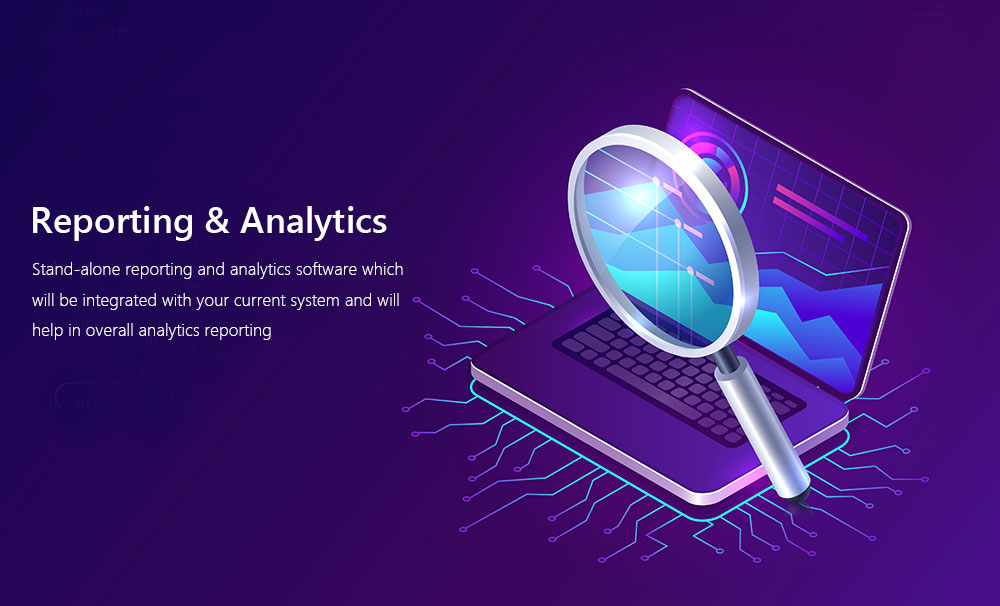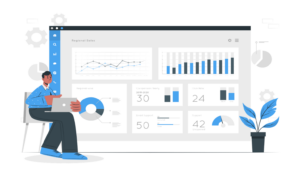
Many things have to go right for the event to be a success, and even minor hiccups can really throw a wrench in the works. And without careful planning, management, and recovery plans (when necessary), everything is probable to fall apart. In short, it takes a lot of effort to manage the event and have expected outcomes successfully.
You are probably already aware of all of these issues. However, may not know that a solution exists that can make the job of planning, running, and tracking an event much more convenient by reducing paperwork, keeping track of everything, and reducing the amount of time you have to communicate to your team on the phone.
When it comes to managing a theatre or any other performing arts event, you have to be very vigilant as your clients are from the live events industry. In this case, any error is not bearable. But if you have a system that can provide you with complete reporting and analytics of your events, then you can manage all the performing arts events without making any errors.
Does this sound like something you’d be interested in? We thought so, too.
Yes, there is a solution to all your problems!
Event Management Software for Theatres with Ability to Provide Reporting and Analytics
An event management software that can solve all your event management challenges, (especially analytics and reporting of an event). It is a software suite designed to assist you in scheduling, managing, tracking, and running events, including analytics and reporting. It accomplishes its purpose by helping you in staying organized, storing pertinent information in a centralized location. This way, it controls many operational tasks associated with managing the events and allows you to focus on other essential business operations.
Now coming to the intelligent feature of analytics and reporting that can be found in a centralized event and venue management software like VenueArc.
Reporting and Analytics to Manage your Performing Arts Events
You worked so hard to plan your event, sell tickets, and promote it, and now it’s finally over. But how do you know whether or not the event was a success?
This is where analytics and reporting come into play. With analytics in hand, you’ll have actual meaningful data to help you measure the success of your event. After you have completed your event report, you can use that information to plan your next event, which will inevitably help to improve your future theatre events.
Reporting and analytics are worthwhile investments because they can help you become more organized and less stressed in the future. Who wouldn’t want that?
We’ll go over a few steps to let you know about the importance of analytics and reporting tool for your performing arts events.
Real-Time Tracking and Analytics for Your Event Venues
Advanced analytics and reporting tools enable you to set goals, measure performance, and gain insights in real-time, allowing you to make better decisions and continuously improve your events.
You can have drill-down data of every event or just the critical data points of your event. Look at which performances went well and gained most audiences’ attention. Discover which sessions, exhibitors, sponsors, speakers, and other elements had the most significant impact on your attendees for a complete picture of event success. Furthermore, this powerful reporting tool can help you gain real-time insights into event and meeting performance. Determine how your performance compares to your objectives. By analyzing all of these data points, you can better understand your artistic clients’ events.
This tool will help you identify whether your event was as successful as you expected and how much revenue you have generated from venues. You can have the revenue analytics compared to the past years. It will help you generate an event highlights report that will compare the previous fiscal year with the current fiscal year, along with the data points differentiated by venue.
With so much data, this tool offers a skilled event strategy to help filter, analyze, and understand event data, ensuring that none of it is wasted.
Analytics for Events Performance
Concerts, stage plays, musicals, festivals, and even movie theaters all face similar issues as they are the most popular and challenging performing arts events. Whether it’s a concert tour for a famous band or the day-to-day operation of a performing arts theater, the right software can make life easier for the event managers.
Seating is the most critical issue for all of these events, even if it isn’t as granular as assigned seating. The revenue generated by ticket sales is the entire purpose of the event, so making the process as easy as possible for both your guests and your staff is priority number one.
There are also food and beverage services available at many of these events, whether through concession stands, independent vendors, or otherwise.
These functions can be digitally analyzed by the Reporting and Analytics tool, making the performance evaluation process for all the events much more seamless yet efficient.
Data Management for Events
First, it stores information gathered from bookings, sales, resource management, and other tool functions. The data is then tracked over time. Finally, the best systems organize all of those numbers for you, often providing visual representations of how they change over time.
Few tools can compete with authentic business analytics tools in terms of power. Still, some can provide a lot of data insight on their own, and almost few of them enable you to export the data for uploading to more powerful number-crunching tools.
The analytics and reporting tool presented in event management software provides you with flawless data management to better your event management experience. Hence, this way, you can get accurate reporting of all your events’ data.
Furthermore, by using this tool, you can create an event template with sorted data that you can use for each event to highlight what went well, what could have gone better, and how you can overcome difficulties and challenges in future events.
Powerful Reporting Specifically for Performing Arts Businesses
This tool can transform your event data into custom visualizations, providing insights into all of your event activities, operations, and planning.
Analytics and reporting are critical in making critical business decisions and determining future plans. An event management software solution can provide performing arts centers with a digitally enabled analytics and reporting solution that can be integrated with their existing system.
A dedicated reporting and analytics tool for the performing arts industry can provide you with a number of pre-built reports that are designed by keeping in mind the complex challenges of the performing arts industry.
Measuring Success with An Event Summary Report and Event Data
An event summary report provided by event management software is a comprehensive overview of an event that contains all critical information associated with an event. Usually, it may display the users the option to enter an Event ID or Event Name to obtain details about the desired event.
Different views, filters, and zoom in/out features can be added to make it easier for users to navigate through the report.
Event data can assist you in making informed decisions, improving event marketing, and optimizing your event on the fly. However, data is an important component of measuring success –– and the foundation of the post-event report.
In brief, an event summary report summarizes how an event performed concerning its objectives. Event reports are frequently read by marketers (including product marketers), event sponsors, and community managers. While they are typically written for internal audiences, some pieces may be appropriate for external-facing channels, such as social media or email, to promote the success of an event and generate interest in future experiences.
Organizers can use an event report to:
Examine an event in relation to its goals and objectives.
To have an overview of the event’s success.
Determine areas for improvement and how to adjust similar events in the future.
Determine the impact for stakeholders, including sponsors.
Make a game plan for upcoming events.
Why Do Event Reporting Matter to Your Theatre Success?
The worth of managed data cannot be neglected. While it may be obvious to an event manager that one event was more successful than another, or which of the venue had the most events this year. It cannot be proven without metrics. Event data is easily accessible with the right event marketing and management technology. The amount of data about attendees and the event can be overwhelming at times, which is why reporting and metrics are helpful.
Choosing which metrics to examine and understanding what success looks like for each event allows marketers and theatre managers to put data to work for them. There is no room for speculation. The final step in the event lifecycle is post-event reporting, and an event is not complete without it. It demonstrates the effectiveness of a meeting and events program to the C-suite and connects events to organizational success.
Want to have a centralized event management software that provides you with analytics and reporting feature as well?
VenueArc is here to fulfil your all your event analytics and reporting needs…
Schedule a free demo now and learn how VenueArc can meet all your event management software expectations!


